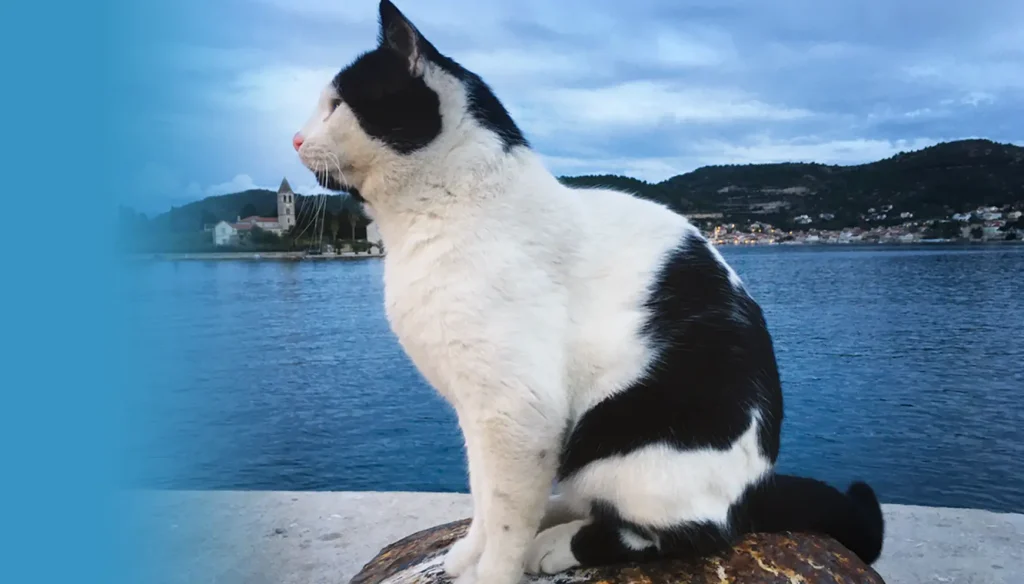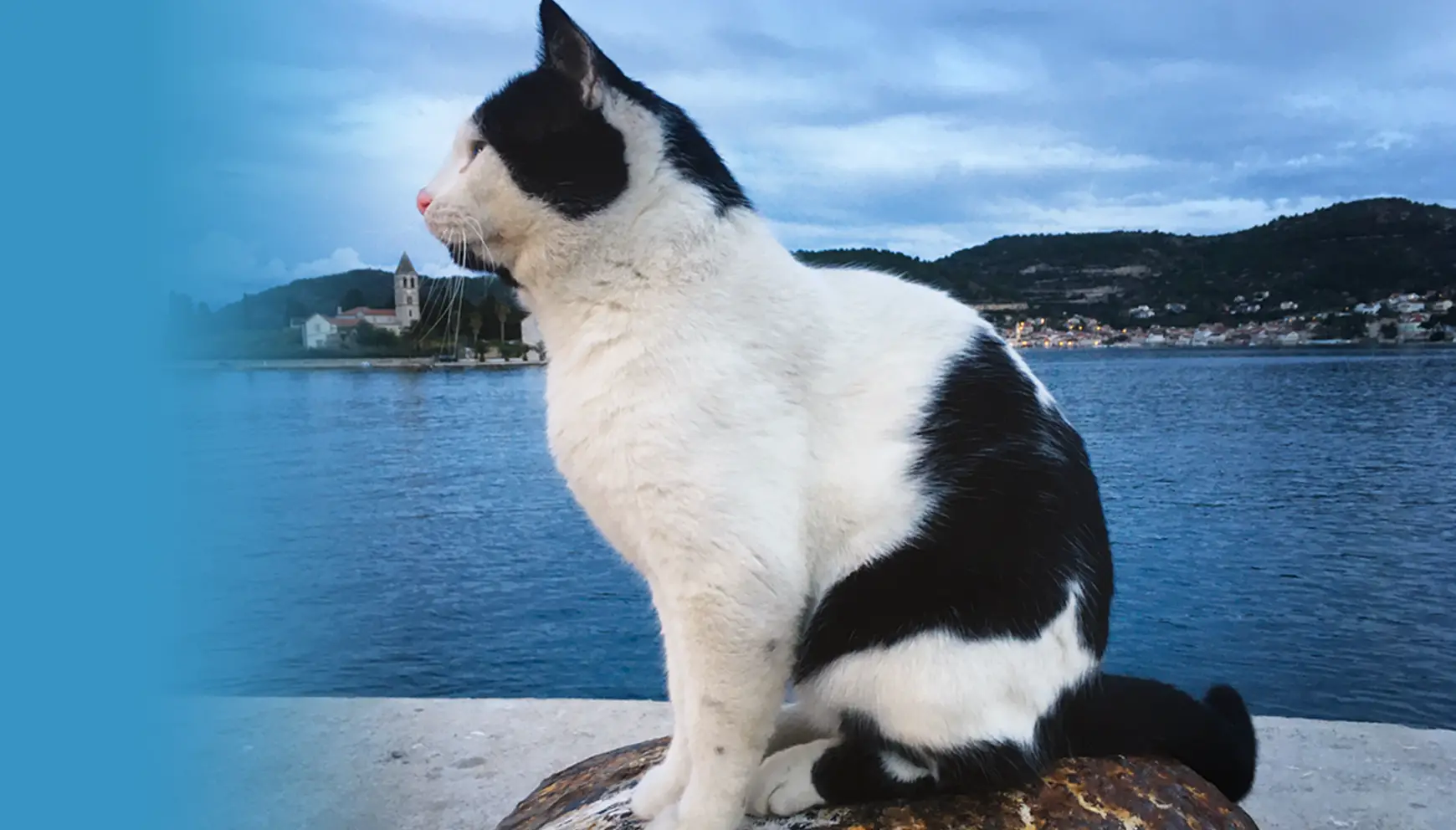
June 9, 2020 – What is the situation with animal shelters in Croatia in the corona era, and who is looking after the animals? A new TCN series meets the volunteers behind the animal shelters and associations around Croatia. Today, TCN meets Streets Cats of Vis.
There are hundreds of incredible shelters and associations in Croatia working tirelessly, with little to no support, to ensure no animal is left behind. In a new TCN series, we meet the people behind the animals.
Today, TCN meets Streets Cats of Vis.
First, tell us a bit about the history of your association.
We’re not an official organization, just two people who want to help people help cats on the island of Vis, where (as of writing this) there’s still no vet. The project started because back in the summer of 2018, we couldn’t find anything, online or in real life, about people doing cat work on Vis. We made our intention visible, gave it a name and an online presence, and started doing the work. Little by little, our action sparked other people to come forward and connect with us: some had already been doing the work quietly, some were inspired to do more. We hope to continue sparking people to come forward and engage with us in this work, because it really does take a community to help community cats.
What is the success rate of getting animals to their new owners?
Getting street cats adopted usually happens after they’ve been fostered for a while first, and is most successful with kittens. Steps towards a successful adoption include socialization, veterinary treatment as needed, house training if possible, sterilization, vaccination, as well as travel documents and reliable transport for cats being adopted abroad. We’ve had some success, which you can see in “The Lucky Ones” section of our website. (www.streetcatsofvis.com)
Do you connect animals with owners only in Croatia or abroad, too?
We connect cats with anyone who can give them love, food, shelter and safety. So far, we’ve re-homed cats in Croatia as well as in other EU countries.
Do you receive any support from the city, county, or state? If so, how much/in what way?
Street Cats of Vis relies on donations to help us cover out-of-pocket expenses, but all work is done on a volunteer basis. In January of this year, thanks to the efforts of a few local women, the town of Vis agreed to pay for the sterilization of street cats, so we no longer need to pay for that ourselves. While writing this, there’s still no vet on Vis, so cats are sent to Split for this. Cats in our care often require vet visits for various problems, vet-prescribed food, medications and other supplies, so donations help us pay for all that.
What is the process of bringing animals to you? Are there any obstacles/red tape in place?
We’re not a shelter, but people bring cats / kittens from Vis to our attention and we go from there. If we’re able to foster, we do. If not, we try to help the person foster the cat or kittens themselves by being available to answer any questions they may have, or to help with supplies. Our goal is to help people help cats, and this quote by Kitten Lady (Hannah Shaw) sums up how we feel:
“If you ever wish someone would help animals, my best advice is to recognize that you are someone. You can be the one who saves the day. You truly can! These are community-based problems with community-based solutions.”
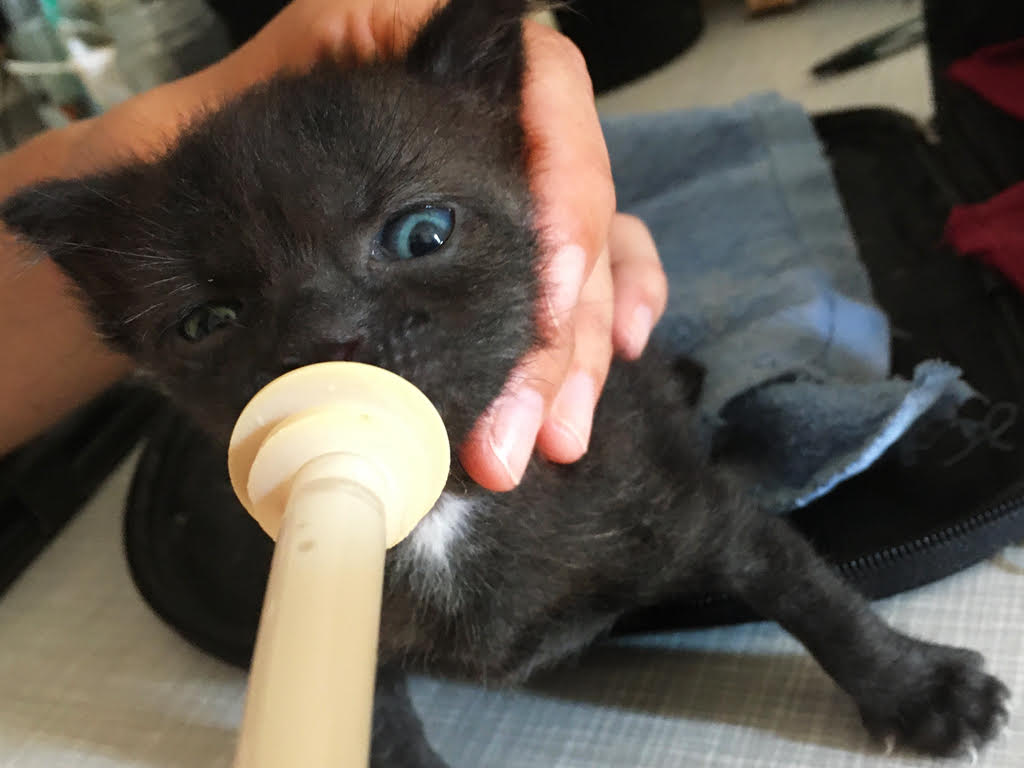
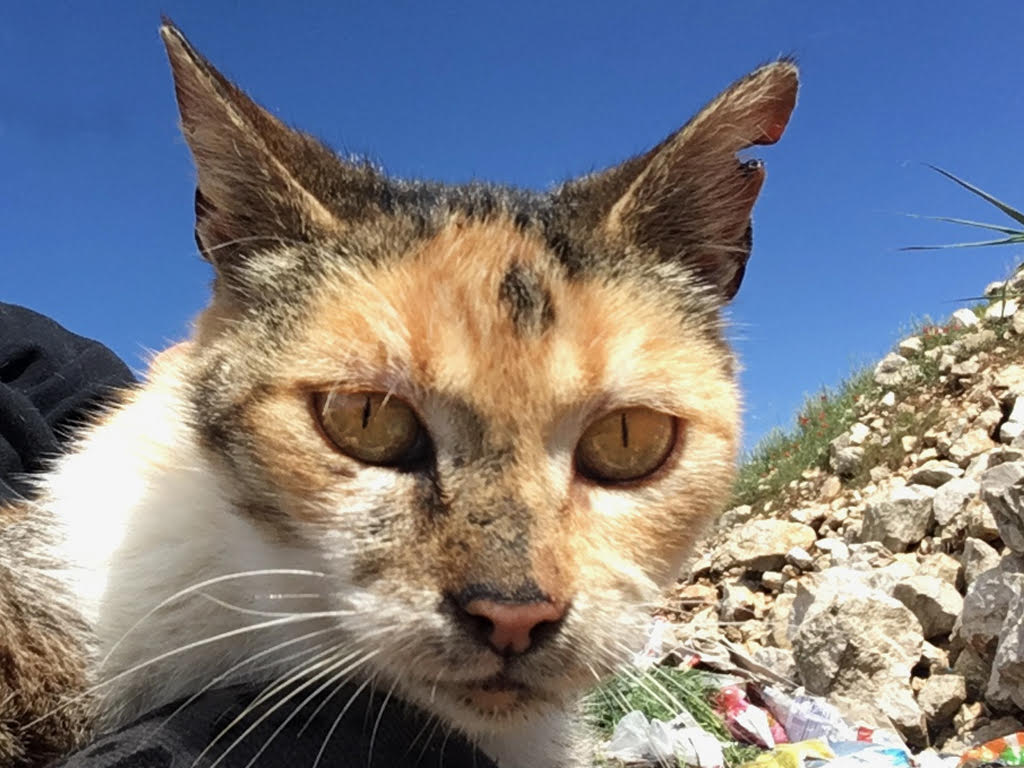
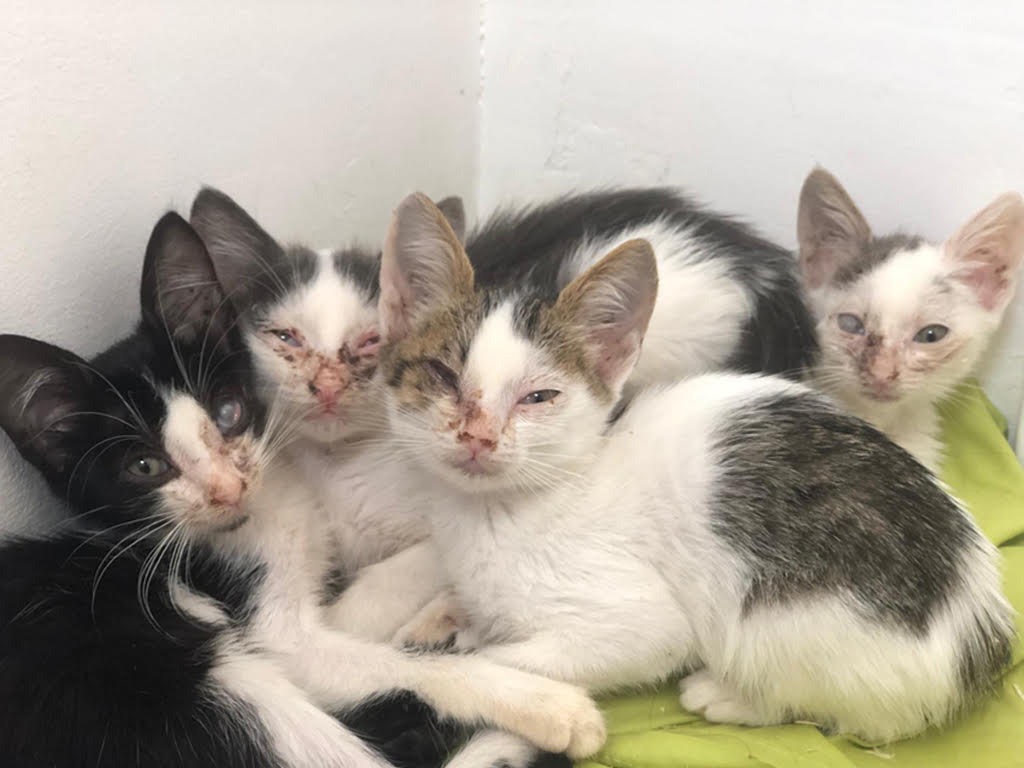
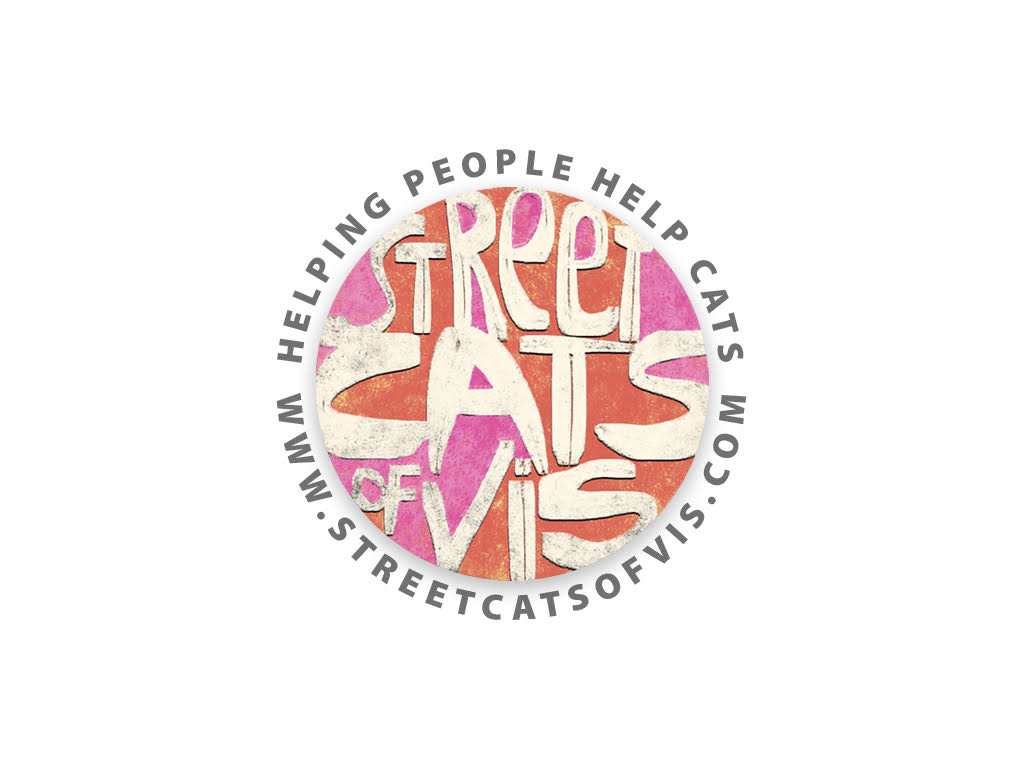
When people come to us with a concern, our first response is to talk to them to try and determine what they could do to help. For example, if they have orphaned kittens, we can explain what they need to do to keep them alive and maybe loan or give them some supplies. If someone tells us about a sick or injured cat in their neighborhood, we try to have a look at that cat and see how we can help. Aside from immediate first aid if needed, this usually means arranging a vet visit in Split.

This is an orphaned kitten we raised.
Just the other day, we helped with an extraordinary rescue. A tabby cat (or tiger, as Croatians say) was somewhere in the engine room of the Petar Hectorović and couldn’t find his way out. The engine crew had seen him covered in oil and had been feeding him for a couple days, but couldn’t catch him. After 24 hours had passed with no sign of him having come out to eat, the crew grew even more concerned. We were contacted about this and went out to help: the crew suspected the cat was under the floor panels. After removing one panel, the cat started meowing loudly. Once a few more panels were removed, we were able to kneel down in the small, oily space, reach in and get the cat out. We recognized the cat as one we’d transported to Split last summer for sterilization. We tried washing the oil off him, but soon realized that he needed veterinary help. After a trip to the vet in Split, he’s now safely back in his home territory.
There is an increasing amount of kittens and puppies left to die in bins or boxes on the side of the road, especially in the springtime. Is the lack of sterilisation the biggest problem in Croatia? Is it really that difficult to get cats and dogs sterilised in Croatia?
Dumping is a HUGE problem on Vis. It’s cruel and unnecessary: if you know of (or have) a litter of kittens that you don’t want, please contact us via our Facebook page (www.facebook.com/
As for sterilizing, being on an island with no vet means that we have the extra logistical hurdle of getting cats to the mainland. In the early days, we used to take cats to Split ourselves, and still do sometimes, but now we’ve established great connections with locals on the island who in turn have great connections with locals in Split who shuttle cats from the ferry to the vet and back when they’re able. If you’d like to assist with transport, please let us know: we welcome any help!
The actual sterilization process is no harder than in any other country, but raising awareness for the need to sterilize community cats remains a challenge. For example, many people understand the need to sterilize female street cats, but refuse to have the males castrated. Castration not only helps with population control, but also reduces nuisance behaviour such as spraying, yowling and fighting with other cats, which can lead to injuries. Overpopulation and nuisance behaviors also cause conflict with people in the community: sterilizing both male and female cats will help solve this problem.
How much does sterilisation usually cost? Do vets offer discounts for street cats or special circumstances?
It doesn’t cost us anything anymore: as of January 2020, with a short break due to the COVID-19 lockdown, the town of Vis pays for street cat sterilization.
How do we make this process easier for locals to get more of them involved in sterilising street cats?
Knowing that they don’t have to pay for it out-of-pocket or deal with the hassle of going to Split makes a huge difference. If anyone wants to have a street cat sterilized, the first step is to determine whether or not the cat has a caregiver. If so, they need to make sure it’s ok with that person. They also need to determine whether or not the cat has already been sterilized. A notch in the ear is a sure sign that YES, the cat has been sterilized, but there may be sterilized cats on the street who don’t have the ear notch. It’s obviously easier to tell with males.

Calli is a cat we had sterilized recently, as you can see from her ear notch. She’s in need of a good home: read her story at www.streetcatsofvis.com/adopt-
We got about 50 cats sterilized ourselves in 2018-19, before the city funding started in January 2020. Since then, we’ve been working with locals to get as many street cats sterilized as possible.
Poisoning street cats is another issue in the area. Is this considered a crime in Croatia? Where should someone report this should they witness it? Are there fines/punishments in place?
Street cats are considered pests because of overpopulation, and we want to help people understand that the street cat population can be stabilized through sterilization. Over time, the number of street cats will naturally reduce. Croatia has good animal protection laws, but there’s difficulty getting them enforced. Any concerns of animal cruelty should be reported to the police. If you need any help with that, contact us via our Facebook page (www.facebook.com/
Can you explain the process of fostering animals with you?
We don’t have anything formally in place, but growing a network of people who can provide foster care is one of our main goals. We foster when we’re able, but we also want to encourage more people to care for cats in need. This involves getting them off the street and into a safe space. Fostering is hard work, but knowing that you’re helping save lives is so rewarding. Fostering also helps prepare cats and kittens for adoption. If you’re able to foster, even by providing a safe space outside with shelter, food and water, please contact us via our Facebook page (www.facebook.com/

This is a litter of kittens we fostered in 2019. Once healthy and sterilized, they all went to good homes in Austria.
How can the local community get involved in helping your shelter/association? What about people from abroad get involved, apart from sending donations?
We’re all about sparking people to action, getting people involved in the work of caring for street cats. There are many ways people can help: locals can provide foster care and transport, and people in other European countries can help by adopting or providing transport for adoption. Anyone can help by sharing our Facebook posts and by talking to others about the importance of sterilizing and caring for community cats.
Is there a way for Croatia to utilise their place in tourism to help animals in Croatia? Whether it is connecting tourists with animals for adoption or organizing volunteer events at shelters?
Definitely! We’re very often contacted by tourists who have concerns about street cats. It’s important for Croatia to be proactive and show that they really care about animals through concrete action and the enforcement of their animal protection laws. The town of Vis has proven that it cares by funding street cat sterilization as of January 2020. We’re also aware that they’re working to bring a vet to the island. Malo po malo…

You can learn more about Street Cats of Vis on its website.
Do you have an animal shelter or association in Croatia and want to share your story? Get in touch at [email protected].
To read more about lifestyle in Croatia, follow TCN’s dedicated page.

